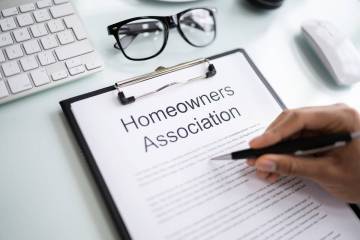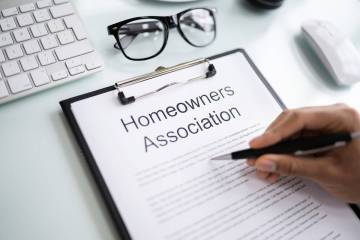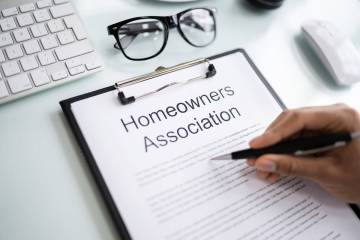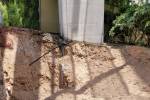Condo owners responsible for roach, mold problems
Q: I am a board member of a condo complex in Las Vegas. What should a homeowners association’s policy be on roach and mold issues? Does the master homeowners policy cover this? Should owners and renters be fined for not cooperating? In one building, we have eight units. When one unit has roach and mold issues, should not the whole building be treated/inspected? It is my opinion that it should. Is this not more than just the owners’ and renters’ responsibility — maybe even be part of a lease agreement? Who is responsible? Even a 50/50 co-payment on treatment?
A: Your association should have specific written policies on these two topics. If you do not have written policies, start working on them. Many apartment associations have excellent covenants within their lease agreements pertaining to the tenant’s responsibilities pertaining to roaches and mold. You may want to contact the Nevada State Apartment Association to assist you in obtaining these forms. These roaches and mold addendums could be sent to your homeowners who lease their homes; that would not only afford some protection to their units but to the remaining units within each building.
You also will need to review your governing documents — specifically, your covenants, conditions and restrictions with your legal counsel — to see what actions you can legally take in obtaining cooperation and mandating reimbursable cost by the individual homeowners within each building.
You are correct that once roaches are found in one unit, to get rid of them, you must treat the entire building. Two major issues that need to be discussed with legal counsel would be the responsibility of the unit owner, who has the mold or roaches in his unit or where preventative action needs to take place in treating the eight units.
The association may also want to obtain an exterminating policy for the homeowners as part of their association fee (which may need to be increased to obtain monthly roach treatment).
As to the association’s primary insurance policy, most policies will not cover roaches or mold. You will need to discuss the coverages with their insurance representative.
Q: You stated in one of your articles, “We moved to another community, one that had a board and a management company that could enforce the association’s regulations and protect the value of my home.”
I live in Queensridge, and all I ever hear from the management company is that a letter/letters was/were sent to the homeowner in violation and that is all they can do to request that the homeowner repair a violation. Obviously, from your statement above, other associations are able to get the homeowner to repair or correct the violation. Please tell me how so I can share this information with the management company and the board. Any help would be appreciated.
A: Associations have to follow specific procedures as part of their due-process obligations. Each association is different as to its governing documents and as violation/fine policy.
You should speak to the on-site manager as to the specific process of sending the various violation notices prior to the hearing fine stage. It should be noted that with a hardcore violator, the association could fine that homeowner each week and still have an open violation if the homeowner ignores the fines.
There is a difference between sending a violation notice and one pertaining to maintenance of the home or front landscaping, especially if the home is in foreclosure or is in bankruptcy or is vacant. This is a more difficult violation and one in which an association cannot spend association assessments to correct maintenance violations.
My article stated that many homeowners become compliant after the first set of letters but, unfortunately, there are neighbors who don’t care, which makes the violation process more difficult.
Q: I am attaching a notice I received from my association regarding the new trash cans.
Specifically, Nevada Revised Statutes 116.232 states that trash cans must be out of sight of “the street,” a sidewalk or any adjacent property. I interpreted this as “the street” was a main street in front of our houses. In my case, that would be Michael Way or Tretter Way, which is inside the complex. Is this the correct interpretation?
Comchec Way is the only way we can get our vehicles into the auto courts. Several of us have our trash cans behind our garages, in the auto court, out of sight of a sidewalk and “the street” — but not out of sight if someone drives on Comchec Way to get to the garage.
The notice from association says the cans must be “out of view” and deems them as “unsightly material,” referencing the HOA CC&Rs. Does the board have the right to supersede the state statute in this case?
A: You want to interpret the word “street” that is stated in NRS 116.332 (2b) to mean the front street of the home. This section of the law allows an association to have regulations ,whereby trash cans are screened from the street, a sidewalk or any adjacent property. The law does not state “front street.” It just states “street.”
You state that there is a street behind the garages, Comchec Way, which is where the trash can was placed. You also included a map and the violation letter, which clearly shows the trash cans behind the garage on Comchec Way. This is not a case where the association is superseding the state law but where the association is narrowly construing the law to mean any street.
Barbara Holland is a certified property manager, broker and supervisory certified association manager. Questions may be sent to holland744o@gmail.com.





























